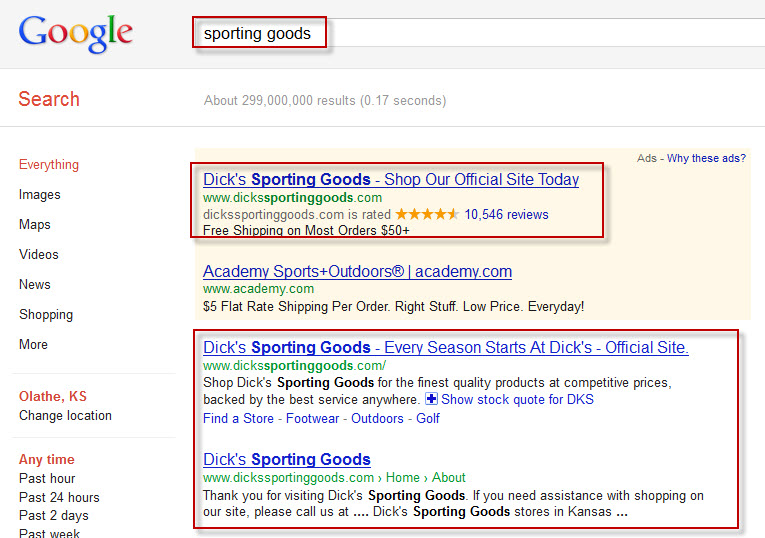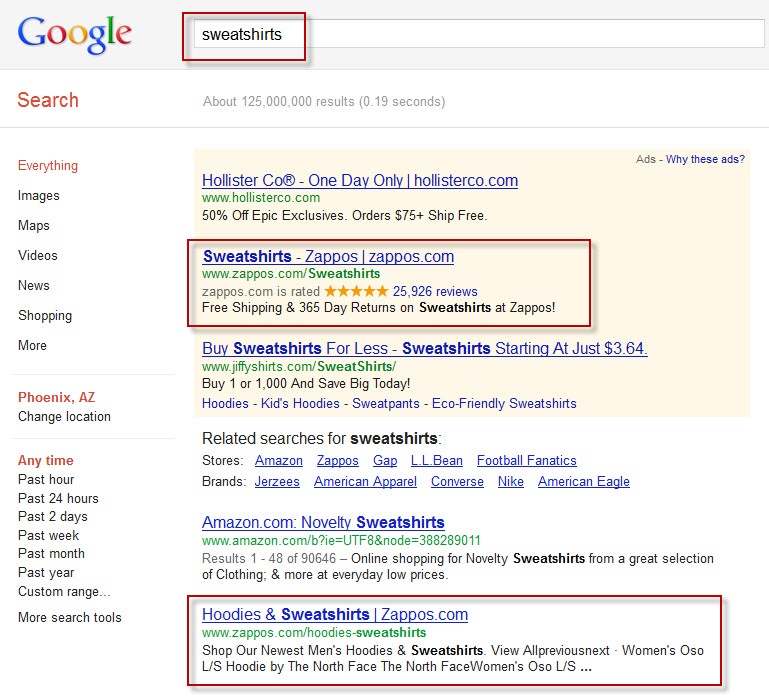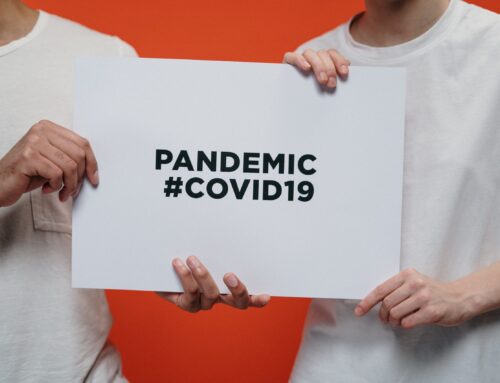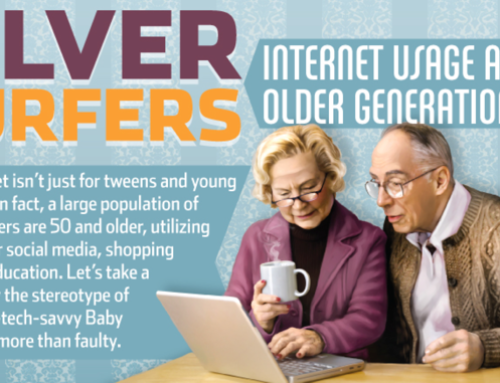“What should my internet marketing budget be?”
This is a question I hear a lot. But it’s the wrong question to ask.
“Should I invest in Sponsored Links (Pay-Per-Click Advertising), SEO (Search Engine Optimization), or Social Media?”
Also not the right question.
The right question to ask might be, “How should I invest in internet marketing?”
The answer, of course, is different for everyone. But the big picture answer might look something like, “Invest in the channels that provide a positive return on investment.”
We’ve got to stop looking at the internet like it’s a single marketing channel. Newspaper, yellow pages, radio, television – these are the marketing channels we’re used to. So when the Internet came along we added it to that list. For awhile, we even increased our marketing budgets to include it. Then, as newspapers’ and yellow pages’ readerships went down, we started diverting money from those channels into the internet. But for the most part, we would buy one online marketing campaign. Maybe we started with an online yellow pages campaign. Then someone introduced us to pay per click, so we canceled online yellow pages. Then we learned about SEO, so we diverted our PPC money.
But this doesn’t make sense. If that $100/mo IYP (internet yellow pages) campaign is providing more than $100/mo in profit, why cancel it? Even if PPC is a better choice, keep that $100 invested in that media because it’s paying for itself and making you a profit. (“You wouldn’t cancel a stock that was profitable to invest in a new one, would you? If you believed in the new one, you would come up with additional money to invest!” – Joyce Bruno)
We’re looking at the internet like it’s a single marketing channel. It’s not. There are a ton of ways to advertise online that ALL have the potential to be profitable.
Let’s look at old media again. If you ever ran TV or radio commercials, did it make sense to only advertise on one channel? If you only chose one, you were missing a large portion of your audience. What if there are multiple yellow pages in your area? Maybe AT&T has 70% readership and Yellow Book has 30%. Do you really want to be invisible to 3 out of 10 potential customers? Most importantly, if your ad in one book is making your phone ring and the investment is profitable, why not advertise in another one? If you can trade $1 to make $2, wouldn’t you do that all day long?!
“David, stop rambling about yellow pages. Get back to my question about my internet marketing budget!”
Okay, sorry.
Here’s the bottom line. If PPC is working for you, keep doing it. Even if you have a goal to rank higher in the organic section of Google, using SEO, keep paying for those pay per click ads as long as they are resulting in sales. Because guess what will happen if you invest in SEO and do get your website to page one. You’ll reach a greater audience (This article talks about a 75%/25% split, but I don’t think it tells the whole story.*) and you could even get more than DOUBLE the clicks! Research shows that when you appear in the sponsored links section of Google and the organic section of Google, your clicks will increase exponentially. Remember how that radio ads salesmen told you that your message had to be heard over and over to be effective? There may be some truth to that on Google too. Something happens when your ad is seen multiple times that gets users to click.
Take a look at some of these examples from companies that we can assume have serious online marketing budgets. We can also assume they do a lot of analysis on their results and wouldn’t keep investing in a marketing channel that wasn’t effective, right?
Dick’s is #1 and #2 in the organic for their big money phrase, “sporting goods”. With an estimated value of $1.96/click and estimated traffic of 125 clicks/day, Dicks is paying somewhere around $3000/year to bid on that one keyword. And I think it’s fair to say that “sporting goods” is only one of many keywords they bid on. If they’re appearing in the organic section for this kw, why invest it it? Do they know something we don’t know?
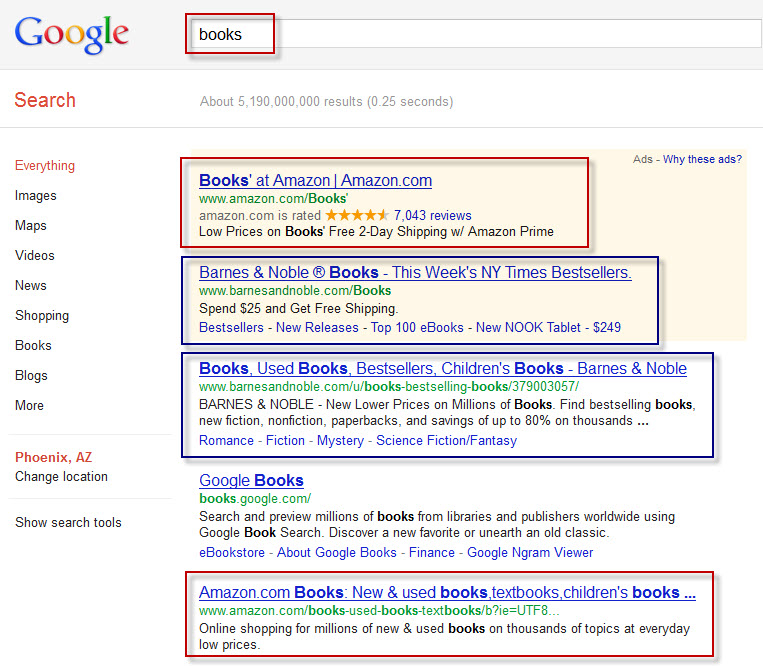 How about Amazon and Barnes & Noble? Everyone knows they sell books already, right? Google certainly pegs them as the authority, ranking them in positions #1 and #3. (I’ll keep my opinion about how books.google.com snuck in there above amazon.com.)
How about Amazon and Barnes & Noble? Everyone knows they sell books already, right? Google certainly pegs them as the authority, ranking them in positions #1 and #3. (I’ll keep my opinion about how books.google.com snuck in there above amazon.com.)
So what do these major book retailers understand about the relationship between organic and PPC that we don’t?
Now here’s a case where you might argue that Zappos is only investing in PPC so they can show up ahead of Amazon.com. Isn’t organic position #2 good enough? Apparently not. Would you be happy with organic position #2? How would it make you feel to achieve that organic position through serious SEO and link building, only to be beat by your competition who set up an Adwords campaign in ten minutes and immediately outranked you?
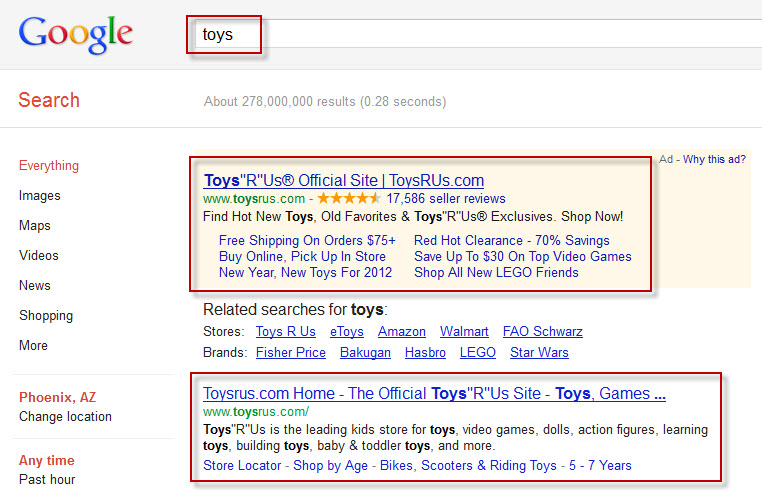 And finally my favorite. Pretty much the king of toy retailers and one of the first things my kids learned to read: Toys “R” Us. #1 and #1.
And finally my favorite. Pretty much the king of toy retailers and one of the first things my kids learned to read: Toys “R” Us. #1 and #1.
Here’s the deal. PPC, SEO and even Social Media are all different ways you can advertise online and it could easily make sense to have a budget for EACH.
I’m currently working with a business owner who does PPC with great success. He told me that his phone calls increased significantly when he implemented PPC. But he also invests in SEO and links. He’s working hard to get to page one for some important keywords. He asked me if I thought he could cut back on his PPC when we got him to page one organically. Can you guess what I told him? (Yes, that conversation inspired this blog post.) I even told him that if he can handle the business, he should consider additional internet marketing channels like social media, infographics and video. Why stop at PPC and SEO?
What do you think? Have you had experiences with PPC and SEO that would support or negate my position? I’d love to hear your thoughts.
Thanks!
David McBee
Pay Per Click • Search Engine Optimization • Link Building • Internet Marketing
* I believe that it’s accurate to say that more clicks come from the organic section of Google, but I believe that’s because sponsored links are often trying to sell a product or service and we are most often not shopping when we are surfing. We are looking for information or entertainment. BUT – when we are shopping, if the sponsored link is the most relevant, we don’t care if it’s sponsored or not. Google makes over 90% of their income on sponsored links and we know they’re doing okay, right? So someone is clicking on the sponsored links! More on that concept in my article: Why am I Passionate About Sponsored Links?

